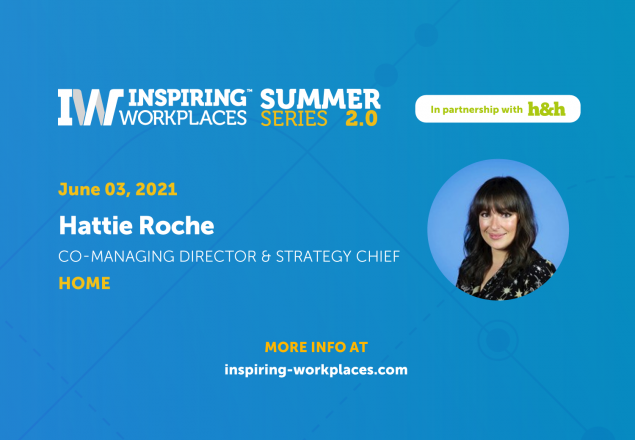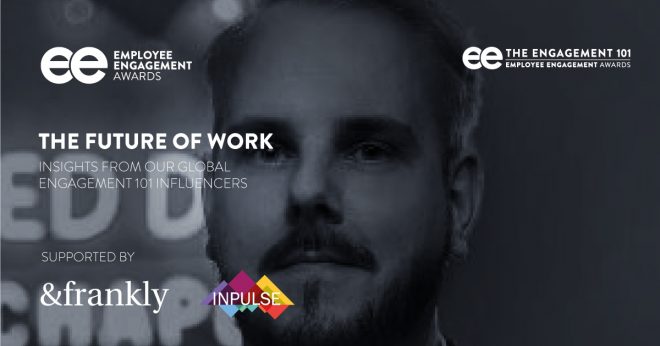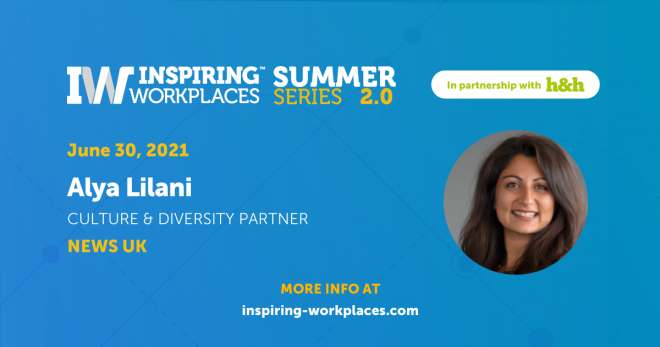
18th April 2024
Guest Blog: How to recruit & retain Gen Z employees

This guest blog is written by Lydia Blundell, Brand & Content Manager at Harkn; the live and continuous employee listening strategy.
Find out how Harkn can help your organisation hear more of what matters from its people here.
This year, Gen Z are expected to overtake Baby Boomers as the dominant age group in the UK workforce (Glassdoor).
Critics of this generation, who accuse them of everything from laziness to job-hopping to being too outspoken, are ignoring one critical fact: Gen Z are not just new to work, they’re the future of work.
Quite simply, the term refers to anyone born between 1997 and 2012, so those currently aged between 12 and 26.
The basic truth is that, while a culture war rages around them and some organisations stubbornly alienate them with their policies, Gen Z will simply take their talents elsewhere.
There are other leaders and organisations, of course, who understand the imperative to recruit and retain Gen Z employees. But it’s not always clear exactly what these newest entrants to the workforce want from their employer.
Thanks to some useful recent research from Deloitte and Thought Exchange, we can help you to shed some light on that.
What does Gen Z want from employers?
Spoiler alert: It’s not pizza Fridays.
Gen Z wants to feel heard
This generation wants to use their voice at work, and they want to feel heard and valued while doing so.
Thought Exchange (1) found that 96% of Gen Z say it’s important they feel valued, included, and empowered at work…
… and 54% of those who DO feel that way say it’s because they feel heard by their leaders.
But here’s the kicker: 59% of those who do not feel heard are hesitant to share their feedback and ideas due to a lack of anonymity.
Your Gen Z employees might be ‘junior’, but that doesn’t mean they’re ok with being ignored by their seniors.
So, what can you do about it?
Give your people safe, anonymous feedback channels to make sure you’re hearing from everyone.
Gen Z wants to be part of the conversation
If one thing is clear about this generation, it’s that they’re not going to be passive bystanders who wait around for their next directive.
No, Gen Z have grown up in an ultra-connected digital world, so they’re probably going to see an annual engagement survey as a little behind the times, to say the least.
What’s more, this generation is less hierarchical than others. Research from Stanford scholar Roberta Katz (2) found that Gen Z prefers consensus leadership, and likes to take a pragmatic, collaborative approach to meeting goals.
Gen Z want to contribute. They want to be involved in change. They want to help shape the future of your business.
To stimulate a culture of continuous learning and innovation, facilitate two-way dialogue that combines complete transparency with complete anonymity.
Gen Z want growth and development
Unsurprisingly, learning and development is crucial for these new entrants to the workforce.
80% of Gen Zs would prefer to have a job that allows them to explore and grow various skill sets, rather than one that’s focused on a particular set of skills (1).
This generation is sometimes unfairly labelled as job-hoppers, but the data begs to differ.
34% of respondents to Thought Exchange’s survey said they want to stay in their job for at least 5 years, while 28% plan to stay indefinitely (1).
Employers: If you want loyalty and retention, give your newest recruits the room and resource to grow and develop – or watch them leave.
Find out what your people need to succeed with active employee listening.
Gen Z want employers to prioritise their wellbeing
This is a biggie for Gen Z, who speak more openly and honestly about mental health and wellbeing than anyone else – helping to dismantle the stigma that’s marred discussion of these topics for far too long.
Indeed, organisations and leaders can learn a lot from their youngest employees when it comes to workplace wellbeing.
Deloitte’s latest Gen Z and Millennial Survey (3) found that 8 in 10 respondents cite mental health support and policies as a top factor when considering a potential employer (3).
These days, meditation apps and gym memberships won’t cut it. All of your people – not just Gen Z – deserve a more proactive, impactful approach to employee wellbeing.
We’ve got a free downloadable guide for that.
Gen Z want to hear what you’re doing for ESG
This generation cares, deeply.
Gen Z won’t compromise on their values, especially when it comes to the environment and diversity and inclusion, and this applies to the work their employer is doing on these subjects.
58-73% of Gen Zs would leave or have already left a company due to differing values (1).
Meanwhile, Deloitte’s report highlights that 50% say they and their colleagues are pressuring businesses to take more action on climate change (3).
Don’t let your employees know about your ESG initiatives in a memo; bring them into the conversation and give them a role in change.
Gen Z expect a good work-life balance
87% of Gen Z say that work-life balance is a critical factor in deciding on jobs (1).
This is becoming a priority for employees more widely, but it’s especially acute for this generation.
They were not in work before the pandemic, so inflexible work doesn’t just seem unfair but downright absurd.
It’s vital to note that work-life balance means different things to different people, and ‘one-size-fits-all’ policies will fall short of creating a positive culture.
For instance, over half of Gen Z think hybrid work is positive for their mental health, while others struggle with isolation or are worried about proximity bias putting them at a disadvantage.
This highlights the need for a nuanced approach to working patterns and styles that’s founded on listening to your people – really listening.
Want to retain your Gen Z employees? Start listening with Harkn
As we’ve already said, Gen Z aren’t just new to work – they’re the future of work.
So, whether you like it or not, it’s well worth your while to consider what matters to them if you want to recruit and retain a diverse and high-performing workforce.
The concept of employer brand is becoming ever more critical, and organisations that take the points outlined above seriously will win the support and loyalty of the new working generation.
From collective sensemaking and decision-making to meaningful communication around ESG activity, you can better serve your Gen Z employees with an impactful employee listening strategy.
Interested in finding out more about live employee listening? Why not book a virtual coffee with Harkn.
References





